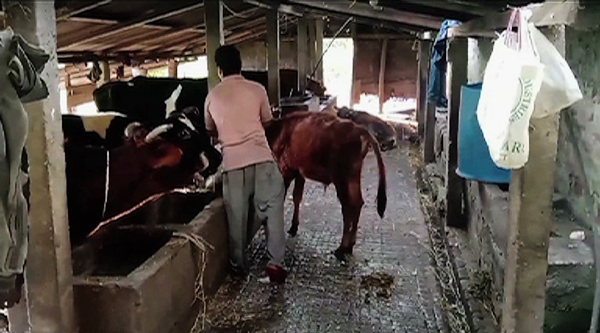 With the rabies outbreak still uncontained in Dewathang Gewog under Samdrup Jongkhar, villagers are now concerned with the huge loss they are suffering as the marketing of milk, which is their main source of income, has been stopped since last two weeks.
With the rabies outbreak still uncontained in Dewathang Gewog under Samdrup Jongkhar, villagers are now concerned with the huge loss they are suffering as the marketing of milk, which is their main source of income, has been stopped since last two weeks.
The gewog’s daily production of more than a thousand litres of milk has come to a halt following the outbreak. And this has affected the livelihood of most villagers as they would normally fetch at least Nu 15000 monthly from the sale of fresh milk.
“Since the supply of milk from our gewog stopped from 29th December, I have incurred a loss of about Nu 12,000. The amount is what I pay as monthly loan repayment and selling fresh milk has been my only income option. I am worried how I will manage the repayment for the coming month,” said Tshering Samdrup, from Dewathang Gewog in Samdrup Jongkhar.
“My cows produce about 30 to 40 litres of milk in a day which I sell for Nu 35 per litre to the group. So, if I calculate the loss in the last two weeks, it is quite huge. We have requested the livestock officials to lift the restriction on milk supply from the unaffected places. But they told us it is risky and the supply will resume once the situation improves,” added Rinzin, from the same gewog.
Since the outbreak last month, six cows have died due to rabies in the gewog. Another one is reportedly showing signs of being infected with the disease and is under observation.
According to the Dzongkhag Livestock Officials, the restriction on marketing of milk from the gewog will be in force until the situation regains normalcy. They said it is risky to consume dairy products from the affected areas as it is not certain which cows are infected.
At the same time, the livestock officials are trying to contain the outbreak in Dewathang. Besides conducting rabies awareness programme in all the five chiwogs of Dewathang Gewog, more than 500 dogs in the affected areas have been vaccinated.
Kinley Wangchuk








